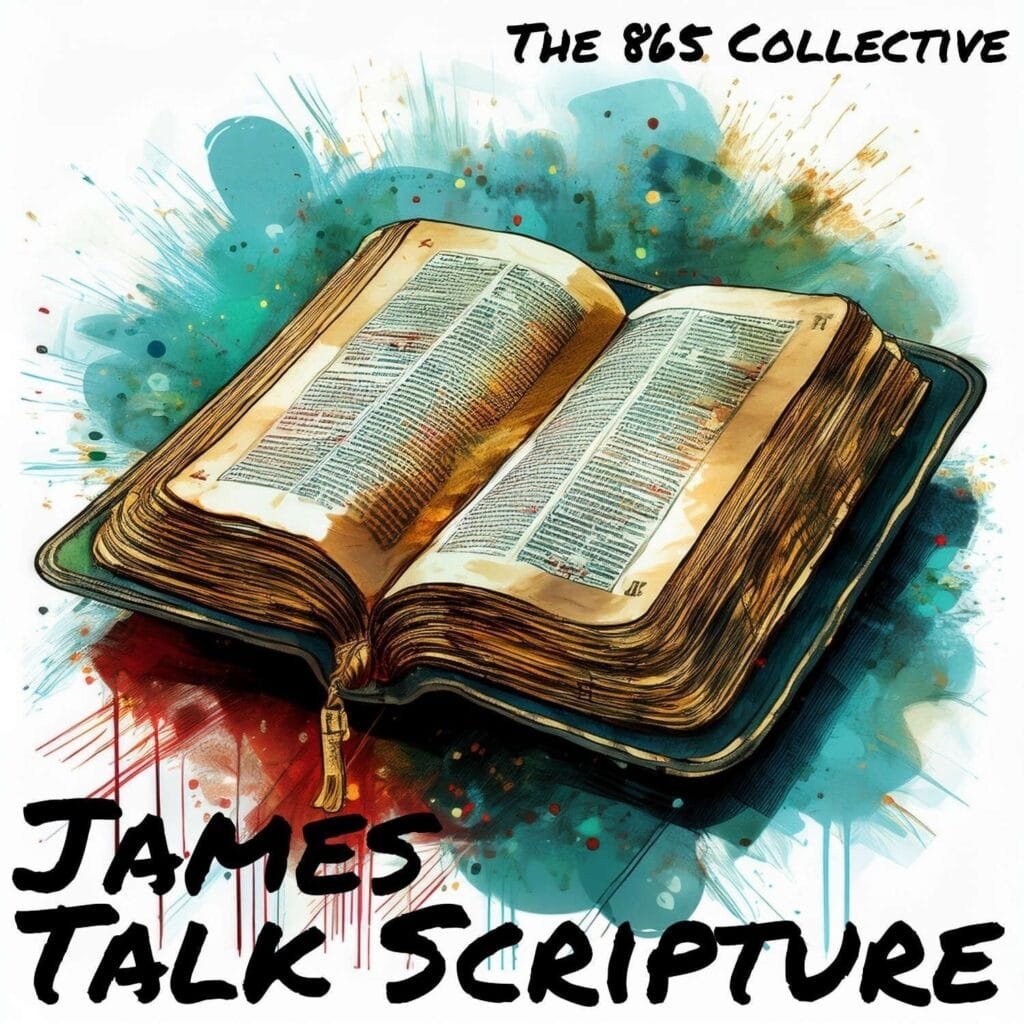What if you wrote a warning, knowing the people it was meant for would never read it? Would it still matter?
That’s exactly what James does in this powerful and jarring passage. He shifts his focus—not to the church—but to wealthy unbelievers, those who trust in riches instead of God. It’s a striking move, especially since they’re not even his audience.
So why issue a warning to people who will never hear it?
Because the church is listening. And James knows it.
He delivers this sobering message for two big reasons:
To warn us.
And to remind us that God is just.
The Warning Is for Us
James is addressing the corrupt landowners of his time, those who gained wealth by mistreating others. But in doing so, he’s really speaking to us—believers. He’s sounding the alarm again. Just like in chapter 4, where he urges us to submit our plans to God, here he’s urging us to submit our wealth to Him, too.
Because let’s be honest: it’s easy to get caught up in the very mindset James is warning about.
Money gives us a sense of control. The more we have, the safer we feel. The more we gain, the more we crave. And before we know it, we’ve built our lives on something that can disappear overnight—all while forgetting the One who gave it in the first place.
Paul offers a similar caution in 1 Timothy 6:9:
“But those who desire to be rich fall into temptation, into a snare, into many senseless and harmful desires that plunge people into ruin and destruction.”
This isn’t just about having money. It’s about trusting in it.
When wealth becomes the goal, people become tools or obstacles. We see it in our world every day—when profit comes before people, when greed drives injustice and corruption. James isn’t just preaching doom and gloom; he’s pleading with us:
Don’t be fooled.
Wealth whispers security, but it’s a lie.
It fades. It rots.
And in the end, it won’t save us—it will stand in judgment against us.
We Can’t Serve Two Masters
James is echoing a truth Jesus made clear in Matthew 6:24:
“No one can serve two masters… You cannot serve God and money.”
And that’s the hard truth—we can’t serve both.
When money takes first place in our hearts, we’re pushing God out. And when we serve money, we make ourselves enemies of God. That’s a terrifying place to be.
But James doesn’t stop with the warning. He also gives us a reminder that might be even more important.
God Is Just—and He Has Not Forgotten
If you’ve ever wondered whether God sees injustice in the world—He does.
James wants us to know: God hears the cries of the mistreated. Every abuse of power, every greedy act done in the dark—it’s not ignored. It won’t be overlooked.
This passage isn’t just a warning to the rich who oppress others—it’s also a word of hope to the oppressed.
If you’ve suffered because of someone else’s greed or gain, James is saying:
God sees. God hears. He will set it right.
That means we don’t have to carry the burden of vengeance or bitterness. We can trust the God who promises to make all things right.
So What Do We Do with This?
James invites us to take an honest look at our hearts.
Like our plans, our wealth must be surrendered to God. Money isn’t the problem—it’s where we place our trust.
Used rightly, it’s a blessing. But when it becomes our foundation, it becomes dangerous.
Here’s the hard question:
Does money define us? Control us? Affect how we love others?
What if God asked us to give it all away?
How would we respond?
If parting with $1,000 feels impossible—or even $10—what does that say about our grip on wealth? And more importantly, its grip on us?
Some of us are tempted to chase wealth. Others are weighed down by it. Either way, James reminds us: God has not forgotten.
He will bring justice.
He will make all things right.
So we don’t need to envy the wealthy or resent the corrupt.
We can trust our just God with it all.
Wealth Fades, But Christ Remains
James is challenging us to live differently.
To stop chasing what won’t last.
To live for what will.
To treat money as a tool, not a master.
To trust God for justice, not ourselves.
In the end, we have to ask:
Which one owns our hearts?
Because one will disappear.
And one will last forever.
”Come now, you rich, weep and howl for the miseries that are coming upon you. Your riches have rotted and your garments are moth-eaten. Your gold and silver have corroded, and their corrosion will be evidence against you and will eat your flesh like fire. You have laid up treasure in the last days. Behold, the wages of the laborers who mowed your fields, which you kept back by fraud, are crying out against you, and the cries of the harvesters have reached the ears of the Lord of hosts. You have lived on the earth in luxury and in self-indulgence. You have fattened your hearts in a day of slaughter. You have condemned and murdered the righteous person. He does not resist you.” James 5:1-6
ESV Study Bible. (2010). Crossway Books.
From Talk Scripture: The Money Trap | James 5:1-6
https://podcasts.apple.com/us/podcast/the-money-trap-james-5-1-6/id1786264764?i=1000697352434
This material may be protected by copyright.

